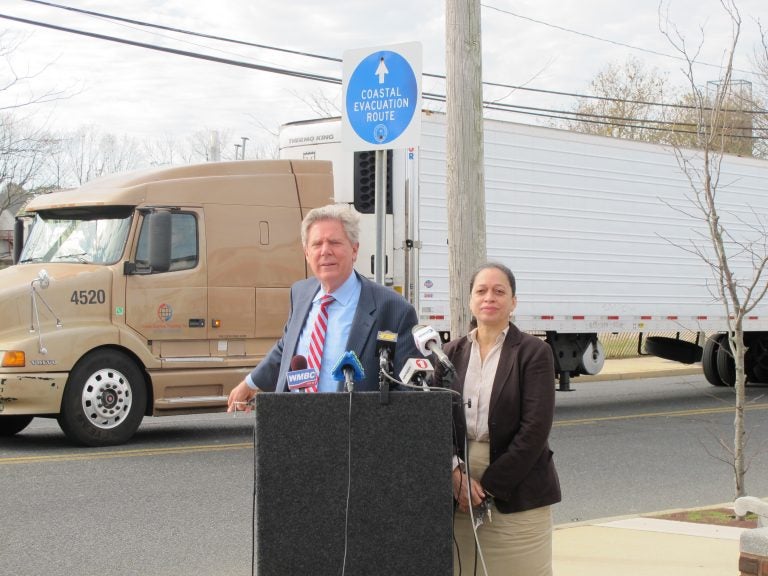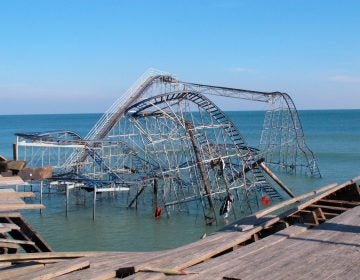U.S. lawmaker wants to extend N.J. law against post-disaster price gouging
U.S. Rep. Frank Pallone, D-New Jersey, says thousands of price-gouging cases have been reported in Florida and Puerto Rico in the aftermath of massive storms there.

U.S. Rep. Frank Pallone, D-New Jersey,, and Beverly Brown Ruggia with New Jersey Citizen Action say price gouging after a natural disaster is despicable. (Phil Gregory/WHYY)
A New Jersey congressman has proposed legislation he said will combat price gouging after natural disasters.
U.S. Rep. Frank Pallone, a Democrat, said his Stand Up Act would empower the Federal Trade Commission to prohibit excessive pricing of consumer goods or services within 180 days of the declaration of a major disaster, as well as determining the fines for violators.
“No one should have to pay excessive prices for essentials such as food, water, and gasoline when they’re a victim of a natural disaster,” he said.
“We had so many cases of this during Sandy. And it seems like it’s getting worse now … 17,000 cases have been reported in Florida alone,” Pallone said. “And I know, in the situation in Puerto Rico, we hear about it all the time.”
Price gouging is despicable, said Beverly Brown Ruggia with New Jersey Citizen Action.
“Sadly, we are going to have more and more natural disasters,” she said. “And it’s going to take law enforcement, unfortunately, and government regulation to make sure that when those disasters happen, that people who are in crisis will not be deceived, treated unfairly, or abused by a greedy business sector.”
New Jersey has a state law that prohibits increases that are more than 10 percent above the typical price before a state of emergency was declared. Pallone said his legislation would provide protections for consumers nationwide.
“For New Jersey, it’s more of a backup. And, hopefully, they’ll be more staff and people that could help with actually pursuing some of the perpetrators of the law,” he said. “And if you had a situation where New Jersey really wasn’t doing what they were supposed to, then people could go to the FTC as an alternative.”
WHYY is your source for fact-based, in-depth journalism and information. As a nonprofit organization, we rely on financial support from readers like you. Please give today.



